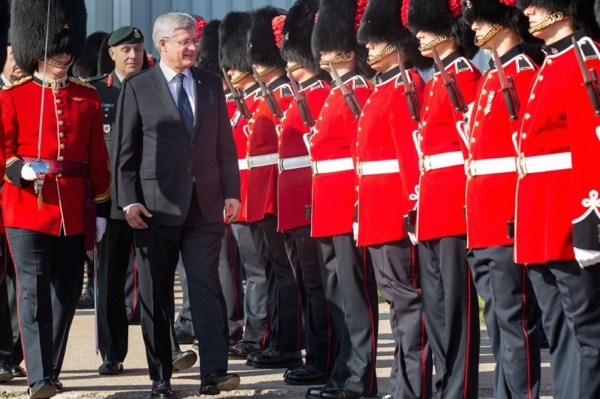Last week, Canadian Prime Minister Stephen Harper shook up his Cabinet, rearranging key members of his foreign policy team ahead of federal elections scheduled for Oct. 19. The move was triggered by Foreign Affairs Minister John Baird’s decision to quit politics, possibly with the aim of collecting a larger pension than he might have if he had waited until 2016. Baird is one of several ministers to depart in recent months, forcing Harper to recalibrate his strategy in what is shaping up to be a difficult election year.
Baird’s replacement is Rob Nicholson, who until last week had served as defense minister and is regarded as a loyal company man in Harper’s Conservative Party.* As Tom Mulcair, leader of the opposition New Democratic Party (NDP), put it: “Mr. Baird was able to stand up to [Harper],” whereas Nicholson has “never, ever wavered in any way, shape or form from strict Conservative party dogma.” The opposition Bloc Quebecois has also condemned the selection of Nicholson, who does not speak French, to represent the famously bilingual nation on the world stage.
To replace Nicholson as defense minister, Harper has appointed the 46-year-old Jason Kenney, described in The Globe and Mail as “a media-savvy minister” who can “sell Canadians on an expected extension of the campaign in the Mideast.” That refers to Harper’s commitment, first made in October 2014, to contribute Canadian military assistance to the campaign against the so-called Islamic State (IS) in Iraq, although not in Syria. In Canada’s National Post, Michael Den Tandt wrote that Kenney’s appointment “further signals that Defence will loom large both in the coming budget, and the Tory election platform.” This is especially important given that Harper is pushing for tax cuts even as the national economy takes a hit from falling global oil prices.

